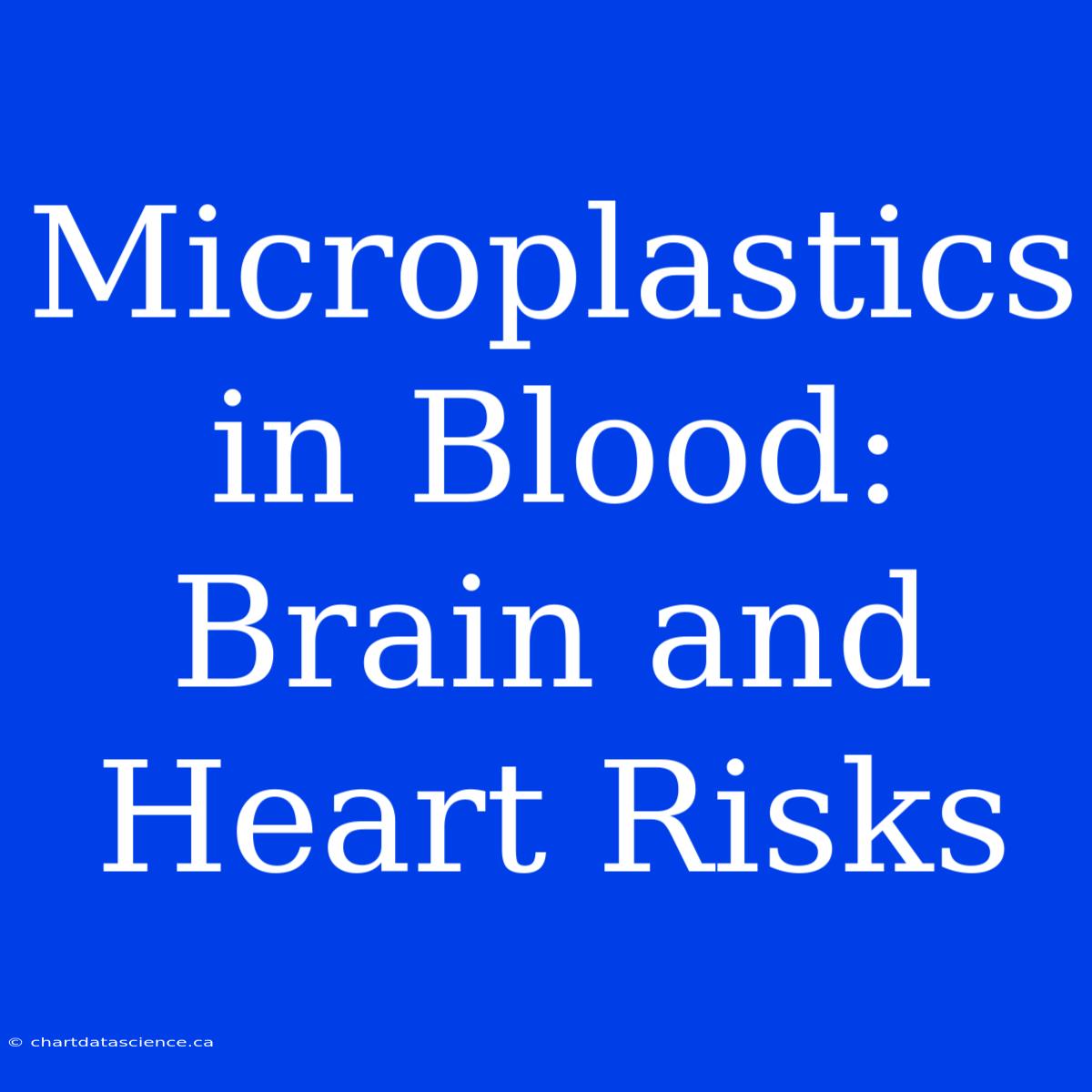Microplastics in Blood: A Silent Threat to Our Brains and Hearts?
We're all aware of the plastic pollution problem, but did you know tiny plastic particles called microplastics are now being found in our blood? This discovery has sent shockwaves through the scientific community, raising serious concerns about the potential risks to our health, particularly our brain and heart.
Microplastics: The Invisible Invaders
Microplastics are plastic particles less than 5 millimeters in size. They are ubiquitous, found in everything from our food and water to the air we breathe. Studies have shown that these tiny particles can easily enter our bodies through ingestion or inhalation, and they can even penetrate our skin.
Microplastics in the Blood: A New Frontier
Recent studies have detected microplastics in human blood samples, suggesting these particles can travel throughout the body and potentially accumulate in vital organs. This finding is extremely alarming, as it implies that even seemingly harmless exposure to plastic can have detrimental consequences for our health.
Microplastics and Brain Health: A Growing Concern
Research is still in its early stages, but there is increasing evidence linking microplastics to brain health issues. Some studies suggest that microplastics could disrupt the blood-brain barrier, a protective barrier that regulates what substances can enter the brain. This disruption could lead to neuroinflammation, cognitive decline, and potentially even neurological disorders.
Microplastics and Heart Health: Potential for Cardiovascular Disease
Microplastics have also been linked to heart health issues. Studies have shown that exposure to microplastics can trigger inflammation in the heart and blood vessels, increasing the risk of cardiovascular disease. This is a major concern, as cardiovascular disease is one of the leading causes of death globally.
What Can We Do?
While the research on the health impacts of microplastics is ongoing, it's important to be aware of the potential risks and take steps to minimize our exposure.
Here are some tips:
- Choose reusable alternatives: Opt for reusable water bottles, shopping bags, and food containers instead of single-use plastic items.
- Avoid pre-packaged foods: When possible, choose fresh produce and unpackaged items.
- Wash your hands regularly: Wash your hands thoroughly after handling plastic items or after touching surfaces that may be contaminated with microplastics.
The Need for Further Research
More research is needed to fully understand the long-term effects of microplastics on human health. Scientists are working hard to determine the specific ways in which microplastics impact our bodies and develop strategies to mitigate the risks.
This is a pressing issue that requires immediate action. We need to work together to reduce plastic pollution and protect our health from the invisible threat of microplastics.

